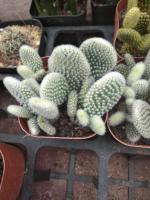Can Tomato Plants Get Rained On?
Tomato plants are a popular crop among gardeners and farmers alike. They require regular watering and care in order to produce healthy and abundant fruits. One question that many tomato growers ask is whether or not their plants can get rained on. In this article, we will explore this question in detail.
The Effects of Rain on Tomato Plants
Rain is a natural source of water for plants, and in many cases, it can be beneficial to tomato plants. However, heavy rains or prolonged periods of rain can have negative effects on tomato plants. One of the most significant effects of heavy rain is that it can cause the soil to become waterlogged.
When the soil surrounding the tomato plants is too wet, the roots may not be able to absorb enough oxygen. This can lead to root rot, which can ultimately kill the plant. Additionally, heavy rain can cause tomato plants to become waterlogged themselves, which can make the stems and leaves weak and susceptible to disease.
Protecting Tomato Plants from Rain
There are several steps that can be taken to protect tomato plants from the negative effects of rain. One of the most important steps is to ensure that the soil around the plants is well-drained. This can be accomplished by adding organic matter to the soil, such as compost or well-rotted manure.
Another way to protect tomato plants from rain is to provide some form of shelter. This can be accomplished by using a simple rain cover or by planting the tomato plants in a greenhouse or other protected area.
Watering Tomato Plants During a Rainy Period
When there is a prolonged period of rain, it may be tempting to stop watering tomato plants altogether. However, this can be a mistake. While it is true that rain provides natural water to the plants, it may not provide enough water to meet their needs.
It is important to check the soil around the tomato plants regularly during a rainy period. If the soil is dry several inches down, it is necessary to water the plants. However, it is important to avoid watering the plants too frequently as this can also lead to root rot.
Conclusion
Tomato plants can get rained on, and in many cases, rain can be beneficial to the plants. However, heavy rain or prolonged periods of rain can have negative effects on tomato plants, including root rot and weakened stems and leaves.
To protect tomato plants from the negative effects of rain, it is important to ensure that the soil is well-drained, provide some form of shelter, and monitor the soil moisture levels regularly. By taking these steps, tomato growers can ensure that their plants produce healthy and abundant fruit throughout the growing season.

 how many times do yo...
how many times do yo... how many planted tre...
how many planted tre... how many pine trees ...
how many pine trees ... how many pecan trees...
how many pecan trees... how many plants comp...
how many plants comp... how many plants can ...
how many plants can ... how many plants and ...
how many plants and ... how many pepper plan...
how many pepper plan...































